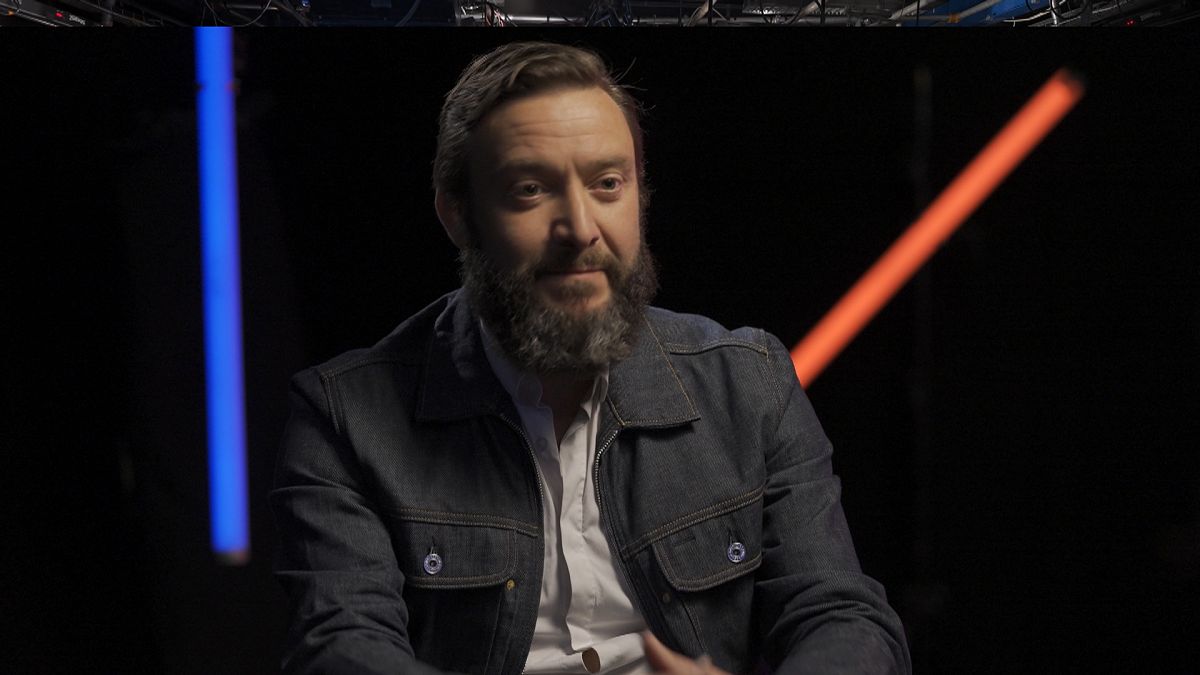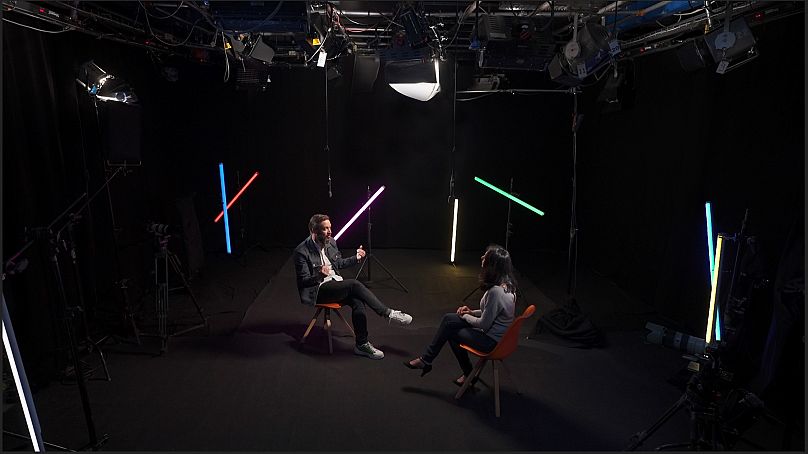Pascal Brun, the head of sustainability for clothes retailer H&M, talks of the company's goal to become climate positive, how fast fashion is nearing an end and how the industry should shape a new environmentally friendly era.
As head of sustainability at H&M, the multinational clothing retail giant known for its fast fashion, Pascal Brun has his work cut out.
He is determined to meet the company's ambitious sustainability target to become climate positive by 2040 and says H&M is keen to not only remedy its own practices but also usher the fashion industry as a whole into a new more sustainable ecosystem.
“With our size comes responsibility,” he told Euronews. “The way fashion is consumed and produced today is not sustainable … We have to transform the industry we are in. Our ambition is to transform from a linear model to become circular.”
To do this, the sustainability chief says H&M aims to ensure resources stay in use for as long as possible and then convert them into new products and materials.
“You can make a fashionable item without having to damage your cyclability,” Brun says, giving the example of his jacket: “Everything in it is made to be more durable, circular, meaning that it's basically a piece and parts that can be disassembled easily and be recycled.”
But H&M is not there yet, with production to scale and supply two of the issues the company needs to find solutions for.
Today, the supply of recycled materials does not come close to the growing demand. Brun hopes that innovation will come to the rescue, financed by a “stream” of orders where “business creates opportunities”.
“We need to bring those innovators and start to create a common partnership of progress,” he said.
The development of greener materials is another way innovation could make clothes more environmentally friendly.
Tons of microplastics flow into our oceans, released each time our clothes are washed. One solution is to educate customers so that they wash clothes using bags to catch the microplastics, another is to find new ways of spinning yarn so they are no longer released.
Some such solutions that are currently being looked into are carbon-absorbing plastics, cotton cultivated in labs. Brun said H&M supports research into a whole range of materials, including leather grown from cells so it doesn’t come “from a cow or sheep anymore.”
From innovation to partnerships to empowering customers to become sustainable, Brun is pulling many threads together to stitch this ecosystem of sustainability across H&M’s value chain.
He has some advice for companies looking to be more sustainable: “I think it's about daring to be bold, daring to commit, daring to be transparent.
“It's about how we encourage people and inspire people to take those leads as well, that's the only way we will create a change for our industry.”





